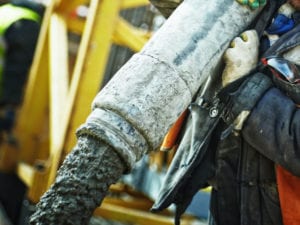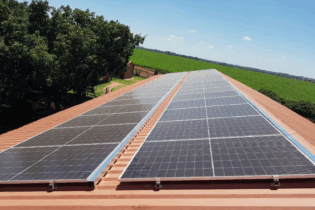The entire South African cement and concrete industry is threatened by multiple challenges of economic decline, the crisis in the construction industry, cheap imports and environment-related issues.
Some 35, 000 local jobs are on the line, together with ZAR billions of investments in the sector’s long value chain. A key global challenge faced by the sector is its significant carbon footprint. The climate change challenge to the industry’s sustainability lies in the fact that cement manufacturing emits significant quantities of greenhouse gases which impact South Africa’s decarbonisation commitments as it moves towards Net Zero, within the framework of the Just Energy Transition Investment Plan (JET IP). Cement and Concrete South Africa CEO, Bryan Perrie, comments: “As responsible stakeholders committed to playing our part in South Africa achieving its Nationally Determined Commitments (NDCs) in terms of the United Nations Framework Convention on Climate Change, the local cement sector has committed itself to ‘Vision: Net Zero Carbon’ by 2050. “This includes an undertaking to decarbonise in accordance with the 1,5˚C global temperature increase pathway in the Paris Agreement and re-enforced at COP26 held in Glasgow last year. The local cement and concrete sector has set key milestones for 2030 in accordance with South Africa’s Technical Reporting Guidelines and in line with the Inter-Governmental Panel on Climate Change reporting framework.” The industry has been under huge pressure due to a toxic cocktail of factors. In addition to the general economic downturn and decline in investor confidence, the sector was hit hard by the Covid-19 pandemic lockdown.The construction industry is in crisis and is now confronted by the threat of construction mafias that have sprung up across the country which has a direct impact on the cement and concrete sector.
Local cement production capacity is around 20 million tons, but is currently producing just 12 million tons. In excess of one million tons of cement imports – the equivalent of an entire cement plant – enters our market annually. Perrie states that the cement and concrete sector in South Africa is steadfast in its carbon greenhouse gas reduction commitment, “We are absolutely committed to our Vision: Net Zero Carbon, by 2050 and will measure this regularly against a series of time-bound metrics.” “With so much at stake, the sector is in discussions with the South African International Trade Administration Commission (ITAC) and the Department of Trade Industry and Competition to take positive action to prioritise its local cement industry. And while remain hopeful of a boost from the Sustainable Infrastructure Development Symposium (SIDS), this has not yet materialised.” Newly published government regulations do not require localisation of product such as cement and concrete, leaving this to individual departments and state-owned enterprises. Thus, Perrie urges that “More is required to secure the sustainability of a sector impacted by both the global pandemic and a decade long slowdown in South Africa’s planned infrastructure build out.”






